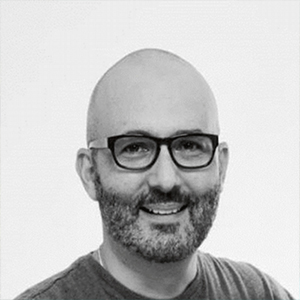
Offer Maurer
Offer Maure (PhD) is a clinical psychologist, the co-founder of the Israeli Institute for Schema Therapy, the International Online Schema Therapy Institute, and the New School for Psychotherapy in Israel. He is the former chairperson of the Israeli Forum for Relational Psychoanalysis and Psychotherapy. Dr. Maurer is a guest lecturer at various international programs on LGBT and sexuality issues, Schema Therapy and psychotherapy integration. He is the founding director of the ‘Gay-Friendly Therapists Team’ (2001), the first LGBTQ-friendly psychotherapy institute in Israel. Based in Lisbon and in London he offers Schema Therapy and Schema-Therapy informed Life Coaching for individuals and groups. Agnes Sullivan is an Advanced Certified Schema Therapist, Group Schema Therapist, Supervisor/Trainer and is Director of the Schema Therapy Institute in London, United Kingdom. She is an Accredited Member of the British Association of Counsellors and Psychotherapists, a Licensed Clinical Social Worker and Certified Emotion Focused Couples Therapist. Agnes has been an ISST approved Director of Training in the UK since 2009, and has been an active member of ISST’s Quality Assurance, Supervisor Skills Training and Brainstorming Sub-Committees, and is on the committee for Auxiliary Schema Therapy in the UK, with Dr Offer Maurer.
Focused schema therapy interventions for anxiety: A hands-on clinical training
Co-Presented with Eshkol Rafaeli
In a period of global crisis and unrest, the gap between the need for mental health treatments and their availability is wide and widening, leading to various efforts to create tailored, personalized solutions to help bridge this gap. But what should such personalization be based on? In recent decades, most research on treatment personalization has emphasized diagnostic categories and protocol-driven, diagnosis-specific care. In recent years, however, the limitations of this approach are increasingly recognized, along with the high prevalence of comorbidities, the utility of transdiagnostic work, and the use of unified protocols that are actually less personalized. Another approach that has gained momentum in recent years suggests that an effective way to improve treatment overall, and enable personalized care specifically, involves process-based therapy. In this approach, championed by Steven Hayes and Stefan Hofmann, leading figures in the second and third wave of CBT, the focus shifts from symptom-reduction to identifying and addressing the underlying processes whose disruption causes symptoms. While Hofmann and Hayes focus primarily on cognitive/behavioral processes of emotional regulation, process-based work can be expanded further to identify and address the array of processes underlying diverse emotional needs. To do so requires two things: (a) a clear lexicon of psychological needs, and (b) ideas for working with each of them. These and other topics will be the focus of this pre-conference. We will briefly review process-focused approaches in general, and then delve into a set of ideas and tools for process-focused work which brings schema therapy ideas into the realm of focused (and often brief and modular) interventions for anxiety and related disorders. We will provide an overview of this model, currently being researched jointly at Bar-Ilan University and UC Berkeley, and will devote the majority of the time to learning and practicing the therapeutic tools it provides.
Exploring Unconscious Discrimination in the Therapeutic Encounter - The Gender and Sexuality Special Interest Group Roundtable
Co-Presented with Nicole Manktelow
This roundtable seeks to explore how discrimination related to gender and sexuality might unconsciously and unwittingly enter into the therapeutic encounter and how we, as schema therapists, can overcome and even harness these realisations in order to promote growth and thriving. As therapists and clients, we are deeply immersed in a society replete with many forms of overt and covert discrimination around gender and sexuality. This likely influences our schemas, modes, and coping styles in subtle ways we may not fully recognise. Our discussion will focus on raising awareness of the insidious effect societal discrimination may have on therapists’ and clients’ inner worlds. We will explore our sensitivities around these topics and examine our ability as therapists to detect the impact of early discrimination on our clients. Key questions include: How attuned are we to gender and sexuality-based discrimination in ourselves and our clients? What discriminations are commonly encountered in working with diverse clients? How might our own unconscious biases affect the therapeutic relationship? What are effective ways to reparent clients affected by discrimination? By shining a light on these unconscious processes, we hope to gain insight into the complex dynamics between gender, sexuality, and schema therapy. The discussion aims to contribute to a greater understanding of these crucial issues so we can enhance our therapeutic approaches to meet all clients’ needs. Together, we can work to counteract societal prejudices and provide the reparative relational experiences clients deeply need

